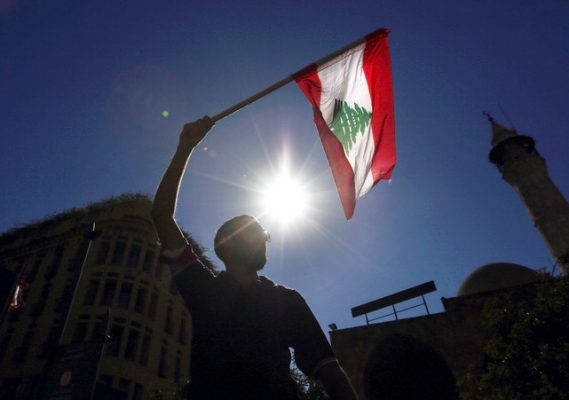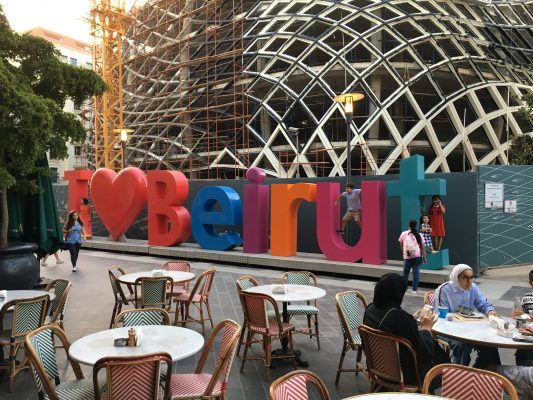
On January 31, following months of political gridlock, Lebanon formed a new government, led by Prime Minister Saad Hariri. Parliamentary elections were held for the first time in nearly a decade in May of 2018, and political factions had failed to agree to a new government in the ensuing months. Now settled, the new government, which is comprised of a plurality of political parties, is tasked with finding solutions to the numerous pressing issues facing the country, and is tackling rampant corruption. Reforms for good governance are needed, especially as Lebanon continues to look abroad for aid and investments to improve its infrastructure.
Lebanon has a long history of relying on foreign aid, dating back to 1992 after the end of the country’s civil war. However, since 2011, the amount of aid flowing into Lebanon has considerably increased in response to the influx of Syrian refugees crossing the border. In April 2018 alone, the Paris IV donor conference pledged over $11 billion to help Lebanon. The country’s poor infrastructure and drained resources leave it ill-equipped to respond to the needs of both the refugees and local population without seeking international assistance. While Lebanon’s economy depends on the international community continuing to supply aid, a lack of transparency surrounding aid and other financial flows from abroad risks a further breakdown in governance, while exposing Lebanon to what the Center for International Private Enterprise (CIPE) calls corrosive capital. Corrosive capital refers to inflows of capital through opaque processes from countries or institutions with little to no regard for internationally observed transparency and compliance standards, thus exacerbating gaps in recipient countries’ governance.
To explore the impact of this aid, CIPE’s partner in Lebanon, the Lebanese Transparency Association (LTA), produced a report intended not only to quantify the amount of aid Lebanon has received over the past seven years, but also to identify gaps in governance surrounding international aid and propose reforms to address these gaps. Researchers unveiled structural flaws on both the donor and recipient sides while tracking direct monetary support and examining where the aid is channeled, how it is spent, and to what extent it addresses the development needs of the country.

LTA reviewed public documents tied to aid from donor countries and international organizations, completed a number of interviews to support its research, and reviewed case studies to trace specific instances of aid flows from a donor country or agency to the Lebanese government. The selected case studies focused on two examples of infrastructure projects funded by the Kingdom of Saudi Arabia and the Kuwait Fund for Arab Economic Development; other prominent donors include China, the United States, Kuwait, and multilateral organizations such as the Work Bank, International Monetary Fund, and the Arab Monetary Fund. Additionally, while Iran provides monetary support to charities and partisan groups in Lebanon, they did not channel any resources directly to the government.
LTA’s research highlighted gaps in the implementation of the regulatory framework governing foreign aid. Lebanon’s Public Accounting Law (PAL) stipulates that the national budget should be comprehensive, reflecting all government revenue and expenditure. However, the country does not maintain a comprehensive budget, and the budget of the Council for Development and Reconstruction (CDR), a key government body administering international aid, is absent from the national budget. Similarly, while the PAL prohibits the creation of private accounts for any ministries or public administrations, several bodies have created sub-accounts for receiving aid at the behest of donors. These inconsistencies with the law hinder transparency and encourage poor governance. Meanwhile, donors negotiate with several government bodies in parallel, potentially resulting in the duplication of efforts by multiple agencies and creating an opaque allocation process.
LTA’s report, meant primarily for local audiences, closed with a series of recommendations for improving the governance of international aid. The key recommendation is for the government to revise its current practices in order to respect the regulations set forth in the PLA by integrating the budgets of agencies not currently included in the national budget and ceasing the creation of private accounts for public administrations receiving international aid. Among other recommendations, the government should also establish a transparent allocation process, develop a multi-sectoral strategy for development, make information on the grants and donations it receives available and accessible by the public, and empower civil society organizations to act as a watchdog on foreign aid projects.
The formation of the new government offers an inkling of hope that the country may take steps to improve the implementation of laws governing aid, thereby improving transparency and, potentially, attracting additional badly needed investment. The coming years will reveal whether Prime Minister Hariri’s government is able to rise to the challenge of improving both the country’s governance and economic situation, and in the process gaining the trust of both the international community and the citizens of Lebanon.
Erinn Benedict is an Assistant Program Officer for the Middle East and North Africa at CIPE.
Published Date: February 28, 2019
